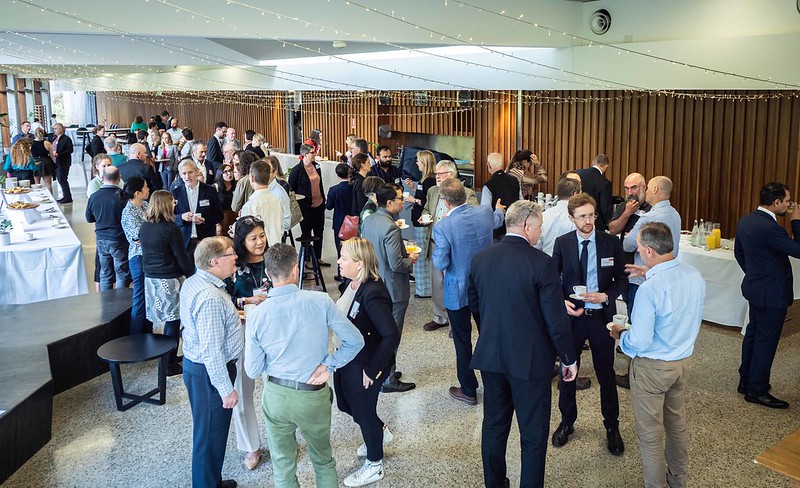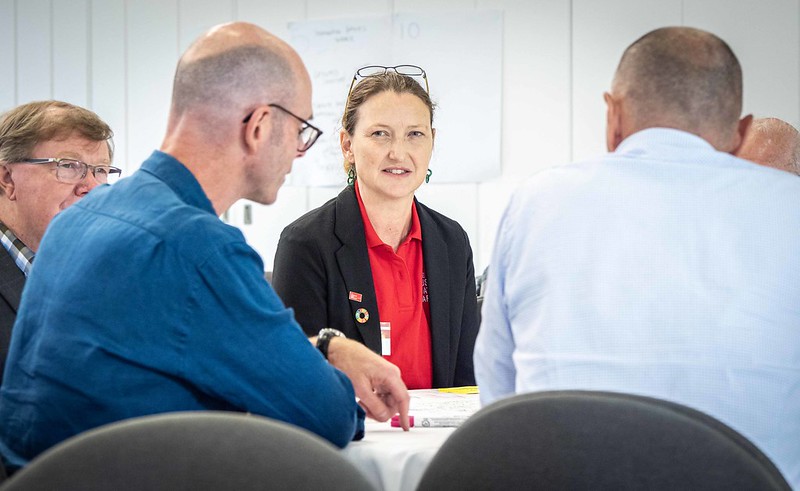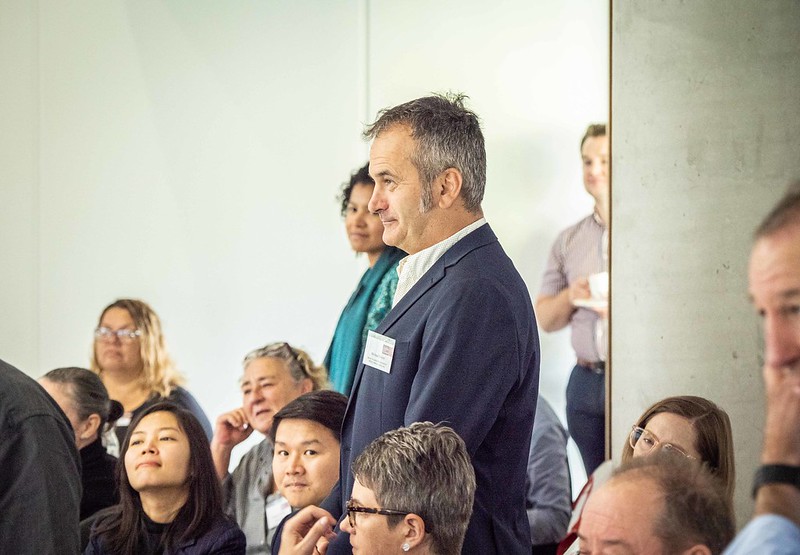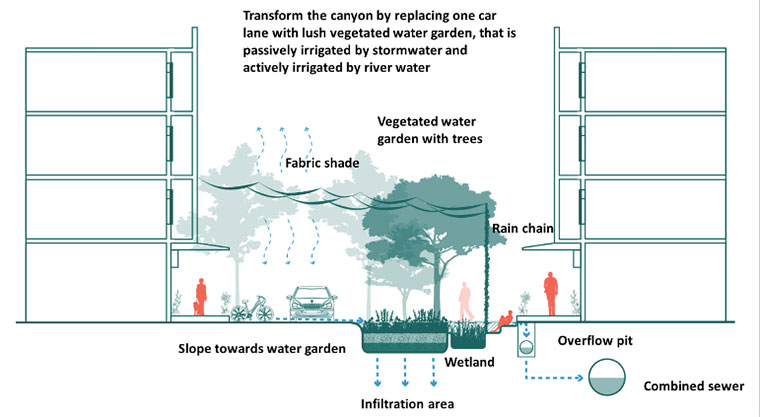Our interest in the workshop was 2-fold:
- First, it was an opportunity to engage with colleagues from the Mekong region, including Dr Anoulak Kittikhoun (Chief Executive Officer, Mekong River Commission), who gave a keynote address about water management problems and climate risks in the Mekong region, how these are being approached and how partnerships are supporting action.
- Second, a key topic for discussion was how to improve outcomes for vulnerable groups, such as women and girls, people with disabilities, people from ethnic minorities and people living in informal settlements.
Both issues are central to our delivery of the Resilient Urban Centres and Surrounds program (funded by the Australian Department of Foreign Affairs and Trade) in Laos, Thailand, Cambodia and Viet Nam. We're working with DFAT posts, the International Centre for Environmental Management and in-country academics, community service organisations and government agencies, applying nature-based solutions to create climate-resilient urban centres.
The event – held on Kaurna Country, Adelaide – was an opportunity for Ben Furmage (WSCA CEO) and Michael Simon (WSCA International Lead) to engage with leading practitioners on co-designing and delivering services that meet the needs of vulnerable groups. We were able to discuss our approaches, and share strategies with some experience practitioners, including Dr Pichamon Yeophantong (Deakin University, and special rapporteur for business and human rights), Ms Keo Kaneka (DFAT MAP-WEC Oxfam Inclusion Project) and Dr Andrea Haefner (Griffith University). It was also a great opportunity to explore these important issues with former CRCWSC partners and collaborators.







